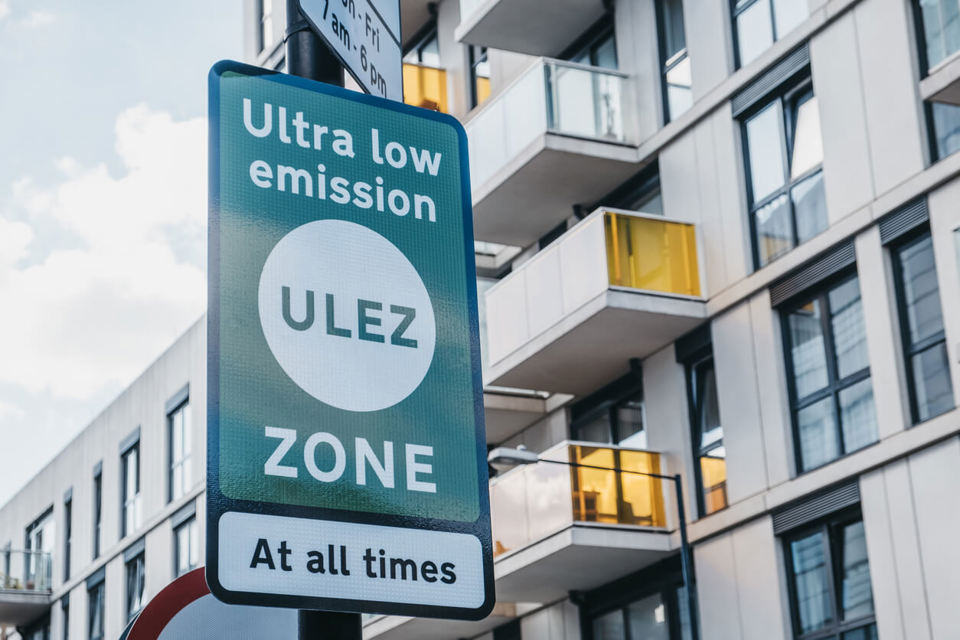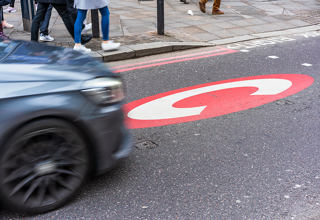Pollution created by diesel cars is higher in neighbourhoods outside London’s Ultra Low Emission Zone (ULEZ), according to new analysis by Environmental Defense Fund Europe (EDF Europe).
It also looked at sites where diesel cars contribute the most to nitrogen oxides (NOx) pollution and found that those with the highest contributions were in areas that will be excluded from the expanded ULEZ.
Transport for London (TfL) is currently installing new cameras ahead of its expansion to the North and South Circular from October 2021.
Based on modelled Breathe London data at 231 locations across the capital, the assessment reveals concentrations of NOx from diesel cars are on average 23% higher at locations outside the existing ULEZ.
The top five study sites most polluted by diesel cars:
- The Broadway, Southall
- Cromwell Road, Kingston
- Romford Road
- Putney High Street
- Euston Road

NOx pollution includes nitrogen dioxide (NO2), which can lead to adverse health impacts like inflaming airways and aggravating existing heart and lung diseases.
The Environmental Defense Fund Europe says it is alarming that one of the study locations with highest pollution concentrations and the greatest contribution from diesel cars is a site in Wembley in Brent, which is one of London’s most deprived neighbourhoods with poor respiratory health outcomes.
The proportion of young people aged 10 to 18 requiring emergency admission for asthma is over 57% higher in Brent than in England as a whole.
The analysis also examines the number of cars in the capital. Car ownership in Outer London boroughs has been creeping up almost every year to reach its highest level in a decade. There are also more than 750,000 diesel cars still registered in the capital – 50% more than in 2010.
Oliver Lord, head of policy and campaigns at Environmental Defense Fund Europe, said: “Increasing car ownership and a lack of policy in outer London could leave us in danger of dividing communities, and some of the most deprived neighbourhoods are at risk of being left behind in the fight for clean air.
“We need more ambition at a local level and for the Government to give us all the certainty that diesel has had its day, sooner rather than later.”
The environmental group says that this latest analysis raises a “red flag to policymakers” that a lack of action, especially in Outer London, may result in a car-led recovery that would likely increase air pollution.
The Government has recently consulted on ending the sale of diesel cars, alongside petrol cars and vans by 2035.
Environmental Defense Fund Europe is urging the Government to bring forward this date to 2030.
A previous report by EDF Europe recommended that, as electric car sales increase, support should be targeted at or prioritised towards lower-income households.
Examples include the Clean Vehicle Rebate Program in California, zero-interest loans in Scotland and London’s vehicle scrappage scheme in London.





















Login to comment
Comments
No comments have been made yet.